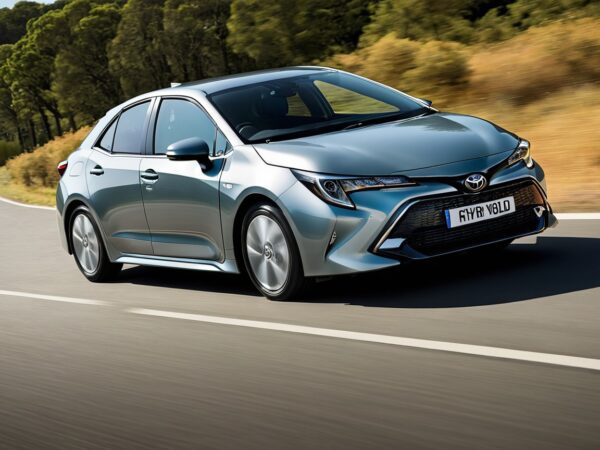
Toyota PHEV
Toyota PHEV (Plug-in Hybrid Electric Vehicles) Cars: In-Depth Overview
Toyota has long been at the forefront of automotive electrification, pioneering hybrid technology with the Prius over two decades ago. Building on its legacy, Toyota has expanded into the PHEV (Plug-in Hybrid Electric Vehicle) segment—offering vehicles that bridge the gap between traditional hybrids and fully electric vehicles (BEVs). Toyota’s PHEVs offer greater electric-only range than standard hybrids while maintaining the convenience of a gasoline engine for longer trips.
🚗 What Is a Toyota PHEV?
A Toyota PHEV combines a gasoline engine with a larger battery and electric motor system than traditional hybrids. These vehicles can be charged via an external power source (like a wall outlet or charging station) and can run on electric power alone for a certain distance—typically 20–50 miles—before switching to hybrid mode.
🔋 Why Choose a Toyota PHEV?
- Electric-Only Driving: Drive short distances without using gasoline—perfect for commutes and errands.
- No Range Anxiety: When the battery depletes, the gas engine kicks in, giving a total range similar to conventional cars.
- Lower Emissions: PHEVs reduce fuel consumption and greenhouse gas emissions.
- Fuel Efficiency: Combined electric and gas performance makes PHEVs extremely efficient.
- Incentives: Many regions offer tax credits or rebates for plug-in hybrids.
🌟 Toyota Plug-in Hybrid Models
Here are Toyota’s most popular PHEV models available globally or in specific regions:
1. Toyota Prius Prime
- Powertrain: 1.8L Atkinson-cycle 4-cylinder + electric motor
- Electric Range: ~25 miles (2022 model)
- Total Range: Over 600 miles (combined gas and electric)
- Efficiency: ~133 MPGe (electric) / 54 MPG (gas)
- Charging Time: ~2 hours (Level 2), ~5.5 hours (120V standard outlet)
- Best For: Eco-conscious drivers and commuters
2023+ Updates: Redesigned Prius Prime now offers a sleeker design, more power, and a longer electric range (~40+ miles), making it a serious competitor in the PHEV space.
2. Toyota RAV4 Prime
- Powertrain: 2.5L 4-cylinder + dual electric motors (AWD)
- Electric Range: ~42 miles
- Total Range: ~600 miles
- Efficiency: ~94 MPGe / 38 MPG (gas)
- Horsepower: 302 hp (one of the most powerful RAV4s)
- 0–60 mph: ~5.7 seconds
- Charging Time: ~4.5 hours (Level 2)
Highlights: Blends performance, utility, and eco-efficiency. It’s perfect for families and adventure seekers looking for a greener SUV with real power.
3. Upcoming Toyota PHEVs
Toyota plans to expand its PHEV offerings as part of its commitment to reduce emissions and diversify powertrains:
- Camry PHEV (rumored)
- Corolla PHEV
- Highlander or Grand Highlander PHEV in select markets
- More bZ (Beyond Zero) PHEV variants blending BEV styling with plug-in hybrid tech
🔧 Technology and Features
- Hybrid Synergy Drive: Toyota’s legendary powertrain system ensures smooth transitions between gas and electric power.
- Regenerative Braking: Captures energy during braking to recharge the battery.
- EV, HV, and Auto Modes: Choose electric-only driving, hybrid operation, or automatic switching.
- Predictive EV Mode: Some models can “learn” your routes and optimize battery use.
- Remote Climate Control: Pre-condition the cabin using electricity before getting in.
⚠️ Advantages and Challenges
✅ Benefits
- Great fuel savings for city drivers or short commutes
- Environmentally friendly with low emissions
- Eligible for incentives, HOV lane access (in some areas)
- No need to rely entirely on charging stations
❌ Potential Downsides
- Higher upfront cost than non-PHEV hybrids
- Limited electric range compared to BEVs
- Battery adds weight—can slightly reduce cargo space
- Charging requires access to a reliable power source
🌍 Toyota’s Vision for PHEVs
As part of its multi-pathway strategy, Toyota sees PHEVs as a transitional technology between hybrid vehicles and full electric vehicles. While pushing ahead with BEVs and hydrogen vehicles, the company continues to refine and promote PHEVs as a real-world solution for markets where EV infrastructure is still maturing.
Toyota has announced plans to:
- Continue innovating in battery chemistry and packaging
- Improve charging speed and electric range
- Expand global PHEV offerings with localized production
- Launch more electrified SUVs and sedans with PHEV options
Here are some helpful links and information about Toyota’s Plug-in Hybrid Electric Vehicles (PHEVs):
🔌 Toyota Plug-in Hybrid Electric Vehicles (PHEVs)
Toyota offers two main PHEV models:
- Toyota Prius Plug-in Hybrid:
- Electric-only range: Up to 44 miles
- Combined fuel economy: Up to 127 MPGe
- 0-60 mph acceleration: 6.6 seconds
- Battery capacity: 13.6 kWh
- Charging time: Approximately 4 hours on a Level 2 charger
- Trim levels: SE, XSE, XSE Premium
- Features: Toyota Safety Sense 3.0, optional solar roof panels, updated multimedia system
- Toyota RAV4 Plug-in Hybrid:
- Electric-only range: Up to 42 miles
- Combined fuel economy: Up to 94 MPGe
- 0-60 mph acceleration: 5.5 seconds
- Battery capacity: 18.5 kWh
- Charging time: Approximately 2.5 hours on a Level 2 charger
- Trim levels: SE, XSE
- Features: All-Wheel Drive (AWD), 302 horsepower, 2,500 lbs towing capacity
🔄 Recent Updates
- Name Changes: Starting with the 2025 model year, Toyota has dropped the “Prime” designation. The vehicles are now referred to as the “Prius Plug-in Hybrid” and “RAV4 Plug-in Hybrid” to clearly indicate their powertrain types,
- Strategic Focus: Toyota is emphasizing a hybrid-first approach, expanding its lineup of hybrid and plug-in hybrid vehicles in response to market trends and regulatory requirements,
🔗 Helpful Links
- Toyota Plug-In Hybrid Vehicles Overview
- 2025 Toyota Prius Plug-in Hybrid Details
- 2025 Toyota RAV4 Plug-in Hybrid Details
- Toyota Electrified Vehicle Lineup
- Understanding Hybrid vs. Plug-In Hybrid
🔚 Conclusion
Toyota’s plug-in hybrids offer an excellent balance between electric efficiency and long-range flexibility. Whether it’s the athletic RAV4 Prime or the efficient Prius Prime, Toyota’s PHEVs deliver strong performance, thoughtful design, and the peace of mind that comes with Toyota’s long-standing reputation for reliability.


